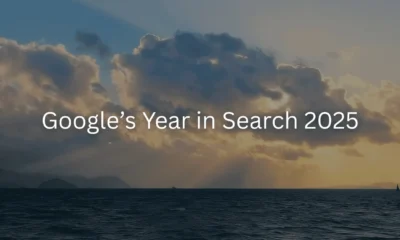Can We Know When SEO Causes Ranking Changes?

A curious thing happened in the most recent Google Office Hours Hangout. Two people reported doing something and their search rankings dropped. Both people undid the changes and their rankings returned. It looked like cause and effect but Google’s Mueller said it was not.
These unrelated events discussed in the same office hours hangout with John Mueller suggests that understanding why something ranks or does not rank is more complex than what is easily observable.
Are Actions Followed by Ranking Changes Causally Related?
Causally Related means when an action causes a reaction, where there is an actual cause and effect relationship.
In SEO a link builder may build links and ideally rankings improve. Pretty straightforward, right?
What happened in the Google office hours hangout suggests that the perceived causal relationship is not that straightforward.
Above the Fold Content and Ranking Changes
Last week a publisher asked if Google gave preference to sites with above the fold content. They asked because a competitor moved the location of their content and afterward experienced a dramatic improvement in rankings.
Google’s John Mueller Answering Ranking Change Question

John Mueller said that the position of the content above the fold is not a strong preference.
The publisher went ahead anyway and updated their site to show more content above the fold and their rankings dropped.
This week he returned to share to ask if the design change to push content above the fold caused the drop in ranking.
Google Ads and Perceived Impact on Rankings
In the same Google Office Hours hangout this week, someone else said that the moment they started a Google Ads campaign their site rankings disappeared from the search engine results pages (SERPs).
They next recounted that when they stopped the Google Ads campaign the site returned to the SERPs and was ranking the same as before (Citation: Rankings Collapsed After Buying Google Ads?).
John Mueller’s response to both cases was to note that the ranking changes were unrelated to the perceived causes of those changes.
In other words, there was no causal relationship between the two events (an action and the ranking changes).
How Can One Know that Google Responded to a Change?
Both ranking related events raise the possibility that one cannot know with certainty that a particular activity is responsible for a change in rankings.
We see this in link building where links are created and rankings improve. But sometimes nothing happens then three months later the rankings improve.
In both cases everyone agrees it was the links. But was it?
Apophenia – Why Humans See Patterns
It turns out that the human brain is wired to see patterns. It’s said to be a survival mechanism that favors those who can see patterns even when they don’t exist because in nature it can prove fatal to fail to see a pattern where a pattern exists.
This tendency to see patterns even where none exist is called, apophenia.
According to Psychology Today:
“Our brains are pattern-detection machines that connect the dots, making it possible to uncover meaningful relationships among the barrage of sensory input we face.
Without such meaning-making, we would be unable to make predictions about survival and reproduction. The natural and interpersonal world around us would be too chaotic.
So, when our pattern-recognition systems misfire, they tend to err on the side of caution and self-deception.”
Competitor Updated Content and Rankings Improved
In the office hours hangout from the previous week a publisher told John Mueller that a competitor updated their site to move their content above the fold and had experienced a dramatic improvement in rankings.
They saw the update to the website and the subsequent improvement in rankings and recognized a clear pattern. So they asked John Mueller if Google gave preference to pages with more content above the fold. (Citation: Does Google Gives Preference to Content Above the Fold?).
John Mueller answered that Google did not have a strong preference for pages with content above the fold.
“I don’t think we have strong preferences in that regard.”
Apparently the publisher was not convinced because they updated their web page to focus more content above the fold.
What happened next surprised the publisher. Their web page dropped from the top number one position to the second position.
Did Content Above the Fold Cause Loss in Rankings?
The publisher, clearly seeing that the competitor had an advantage sought to close that advantage by pushing their own content closer to the top of the page.
What they did was to remove an image banner from above the fold. After doing removing the banner and improving their web page their keyword dropped from the number one position to number two.
Instead of solidifying their rankings the web page lost ranking position.
So now the publisher was back at the Google office hours hangout asking if the change they made is responsible for the drop in rankings.
Mueller responded that the changes that were made are not particularly dramatic enough to cause the observed change in rankings.
He said:
“I think if you make that kind of design change on your website, where suddenly the content moves up or suddenly the content moves down, you would generally see that as a fairly soft change, like a very small change.
…I don’t think you would be able to… tie it back to that change.”
When told that the change in rankings was from position one to position two, Mueller reaffirmed that the ranking drop was not tied to the design changes and that what was seen was just normal day to day ranking changes.
Mueller said:
“That feels like… a subtle, normal change in search that can always happen, that a site moves from position one to position two or position three and then to position two and then position one.
These kinds of changes are fairly common.”
Google’s Algorithm is a Black Box
The truth is that nobody can actually know, with certainty, that something that was done had an effect on Google’s algorithms.
In computing, a black box can be an algorithm whose inputs and outputs can be seen but how those inputs were processed and how the outputs were computed are not seen.
Google’s algorithm is this kind of a black box. Those outside of Google cannot see or know what is happening inside of the box.
We can put links and content into the black box and see the rankings come out on the other end. But since we can’t see what happened inside the black box that means we can not know why the site is ranking where it does.
SEO Cannot Be Definitively Attributed to Results
By not knowing what happened inside the box we literally do not know if the links did the trick, if some of the links helped the web page rank or if none of the links and the rankings were the result of the content alone.
It is a fact that how the links and content influenced those rankings cannot be known by those who do not know how the black box operates. This is a fact.
The implication of this is wide ranging. For example, we absolutely cannot extract the anchor text to brand name anchor text ratios and assign a meaning to that ratio.
Some people will observe that in a study of millions of sites the top ranked sites shared XYZ anchor text ratios and prescribe those as the statistically “natural” distribution of anchor text.
And while that’s a statistical distribution of anchor text perceived to be the normal ratio, there is nothing in that statistic that means this is what contributed to their top ranked status because we don’t know what happened inside the black box.
There is literally no causal relationship between the inputs we observe going in and the outputs observed coming out. We are only seeing patterns that our brains are wired up to see.
We see the patterns that our brains automatically stitch together in meaningful ways.
There are many aspects of SEO that exist because our brains see patterns that do not necessarily have a causal relationship.
In my opinion, it may open up a new way of seeing SEO if we as an industry became more self aware about our natural tendency to see patterns where they may not exist.
Doing this may help us to move beyond observing the obvious and become more open to entertaining other reasons for the outputs we see coming out of Google’s black box algorithm.
Citation
Removing a Banner to Push Content Up Caused a Drop in Ranking
Watch it at the 12:36 minute mark

![How AEO Will Impact Your Business's Google Visibility in 2026 Why Your Small Business’s Google Visibility in 2026 Depends on AEO [Webinar]](https://articles.entireweb.com/wp-content/uploads/2026/01/How-AEO-Will-Impact-Your-Businesss-Google-Visibility-in-2026-400x240.png)
![How AEO Will Impact Your Business's Google Visibility in 2026 Why Your Small Business’s Google Visibility in 2026 Depends on AEO [Webinar]](https://articles.entireweb.com/wp-content/uploads/2026/01/How-AEO-Will-Impact-Your-Businesss-Google-Visibility-in-2026-80x80.png)















